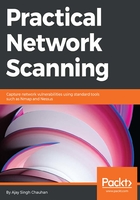
Computer security
Computer security is not all about end user computing, it also includes server/application infrastructure. For any data transfer between server and client, both ends should be secure. Even the communication channel should be secure enough to avoid data theft.
We know that professionals understand network security, but how about end users? We can force users to implement security strategies, but is that enough? For better security, awareness is key. Security issues are constantly being found with the software we use every day, including common and reliable programs such as Windows, Internet Explorer, and Adobe's PDF Reader. It is therefore very important that we take some simple steps towards becoming more secure.
People often think of computer security as something technical and complicated, but that is not strictly the case. In the following, we will explore the most basic and important things you should do in order to make yourself safer online:
- Use antivirus and antimalware and know which links are safe to click in emails
- Be careful about programs you download and run; don't trust your pop-up notifications
- On the server level, encryption chips can be used just to avoid physical theft of hardware
Most computer facilities continue to protect their physical assets far better than their data, even when the value of the data is several times greater than the value of the hardware.
Since awareness is especially important, we should also consider how much awareness we have within the organization. This can simply be achieved by sending a few emails that look genuine and getting the statistics of how many users opened such an email. Activities can be tracked in terms of number. For example, the statistics can be viewed for how many users shared their password and how many downloaded an attachment.